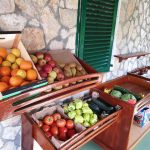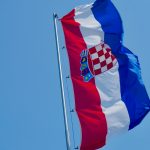Krk will host a conference on smart islands this October.
As Poslovni Dnevnik/Sasa Paparella writes on the 13th of May, 2018, in March 2017, representatives of a series of European islands, from the Baltic to the Mediterranean, signed the Declaration on Smart Islands in the Belgian capital and the seat of the EU, Brussels.
Among them was a delegation representing the Adriatic islands, with their commitment to building energy-efficient, environmentally sustainable and digitally-connected communities.
Until now, the aforementioned declaration has been signed by over 200 European island self-government units, and in Croatia, Krk, Baška Municipality, Dobrinj Municipality, Omišalj Municipality, Punat Municipality, Vrbnik Municipality, Zadar (on behalf of the islands of Ist, Iž, Molat, Olib, Premuda, Rava and Silba), the Municipality of Lopar, the City of Korcula, the Municipality of Vela Luka, the Municipality of Mljet and the Municipality of Lastovo have all signed it. Both relevant domestic associations, Island Movement (Pokret Otoka) and the Island Parliament, have also signed the declaration.
The Smart Islands Initiative was initially inspired by the EC Smart Cities and Community Initiative, but this goes one step further through the strengthening of synergies between energy, transport and ICT, with the inclusion of water and waste topics, all based on the circular economy principle.
All small European islands that are characterised by sustainable local economic development and efforts to raise the quality of life fall under the scope of becoming smart islands. In the declaration, the signatories state that the idea of smart islands is the “bottom-up initiative” of the island’s self-government units and local communities, which expresses the level of importance of exploiting the significant potential these islands have as living examples of technological, social, ecological, economic, and political innovation, not to mention their abilities to offer solutions in the respective areas of energy, transport, and inclusive management, which are all readily applicable to non-island communities.
Most of the Adriatic projects related to the smart island concept are currently in their initial design phases, with the exception of those on the island of Krk, where the islanders have, over the past ten years, been using and advocating concrete examples to influence the island’s sustainability.
“It’s true that the islands are, as a relatively small and enclosed entity, the ideal polygon to test different solutions in different segments of local community life, which could later be applied on a wider scale. Since 2009, the City of Krk has been working intensively [on this] and guiding its development according to the principles of sustainability. Several strategies (PUR, energy, agriculture, tourism) have been developed, that have defined the goals of the sustainable development of the City of Krk with emphasis on food, energy, tourism and environmental protection, and we haven’t forgotten the objectives of the municipal economy, education, sport and the efficiency of local self-government. On several projects, we’re trying to use state-of-the-art technology to provide the local population with the best quality of life. To further fine-tune all the goals already set and to define what we should do in the near future and become a smart city, we’ve been working on developing a Smart City Strategy for the City of Krk since March,” said Čedomir Miler, the Deputy Mayor of Krk.
When it comes to these praiseworthy endeavors, the city authorities are cooperating closely with Krk’s Ponikve communal company, which, judging by some of the solutions and achievements it has thought up, is one of the best communal companies in Croatia, dealing with the water supply, the drainage system, waste disposal, and recycling more than 50 percent of all the waste generated on the island of Krk.
“The main goal we set ourselves is to enable our community to connect its own resources with its own requirements and not to inflict irreparable damage on the environment. In that sense, there are many challenges that will need to be addressed in the near or far future, and we’ll try to deal with that using the latest IT solutions. Our goal is to set up a fibre optic network with at least two threads at each residential, business, or communal building. Of course, in all of these efforts, we’re going to need the additional knowledge and experience of other island communities from across the world. To obtain such experience, we’ve accepted the draft of the Ambassador of the Kingdom of Denmark, Cristian Thorning, for us to host a one-day international conference on smart islands this October,” added Miler.
The islands have always encouraged innovation
For the past year, the initiative and project ideas for the islands have been arriving from all sides, especially in the fields of social entrepreneurship, energy, social capital development, and island heritage revitalisation, as well as the development of ports, beaches and tourist facilities and infrastructure, says Maja Jurišić, Head of the highly respected Island Movement.
“We’ve arrived to a time when we no longer solely need to be aware of the challenges in front of us, but come up with concrete reactions to them, and the logical sequence of our actions was to be included in the Smart Islands initiative. I agree that islands can be the ideal areas for the development of different pilot projects that can be transferred and replicated to other land areas, especially other rural areas that are facing similar challenges,” noting that the islanders have always had to be innovative in view of the fact that due to their distance from the mainland, generally poor connections and a continuous lack of resources, they were forced to find their way of getting things done properly alone.
“Through years of effort, they’ve [the islanders] been left feeling isolated and left behind, but with today’s virtual technology, we’re more connected than we’ve ever been before. The continuous raising of awareness and concrete actions are needed to prevent resource depletion and uncontrolled environmental devastation caused by the overdevelopment of tourist traffic. This is a real moment to turn towards new economic models that will take into account not only the financial and personal benefits, but also social and environmental impacts, and one without the other just isn’t sustainable in the long term,” said Maja Jurišić.
Her colleague from the Island Movement, Andreja Baraba, who is also a member of the working group on the grafting of the Islands Act, noted that the declaration follows the definitions of the European Parliament Resolution on the Special Situation of Islands of 2015, which emphasised the islands and their characters.
“The draft of the new Act on Islands includes concepts such as clean energy, sustainable development of the islands and smart islands, to ensure their development on the principles of the declaration and of course the necessary financial resources both in the state budget and in the new financial perspectives of the European Union. In order to respect the needs of the island communities, we insisted that the new law be based on the bottom-up principle, which will be ensured through the increased roles of coastal island counties in the planning and implementation of island development, their cooperation with local self-government units on the islands, or on the mainland by people from/representing the islands, and two-way communication, and the island coordinators were introduced as the people who should take care of the island’s development on a vertical-horizontal basis.”
The Island Parliament Association, led by Denis Barić, is a member of ESIN (European Federation of Small Islands), the association also participated in the development of the declaration on Smart Islands.
“The declaration should be signed by all coastal counties, island local self-government units, as well as landlocked islands, because they support their island’s development with their signatures. In recent years, the European Commission and Parliament have changed their policy towards the islands, and not only islands, but also all the rural areas within the EU,” stated Barić.
Click here for the original article by Sasa Paparella for Poslovni Dnevnik








